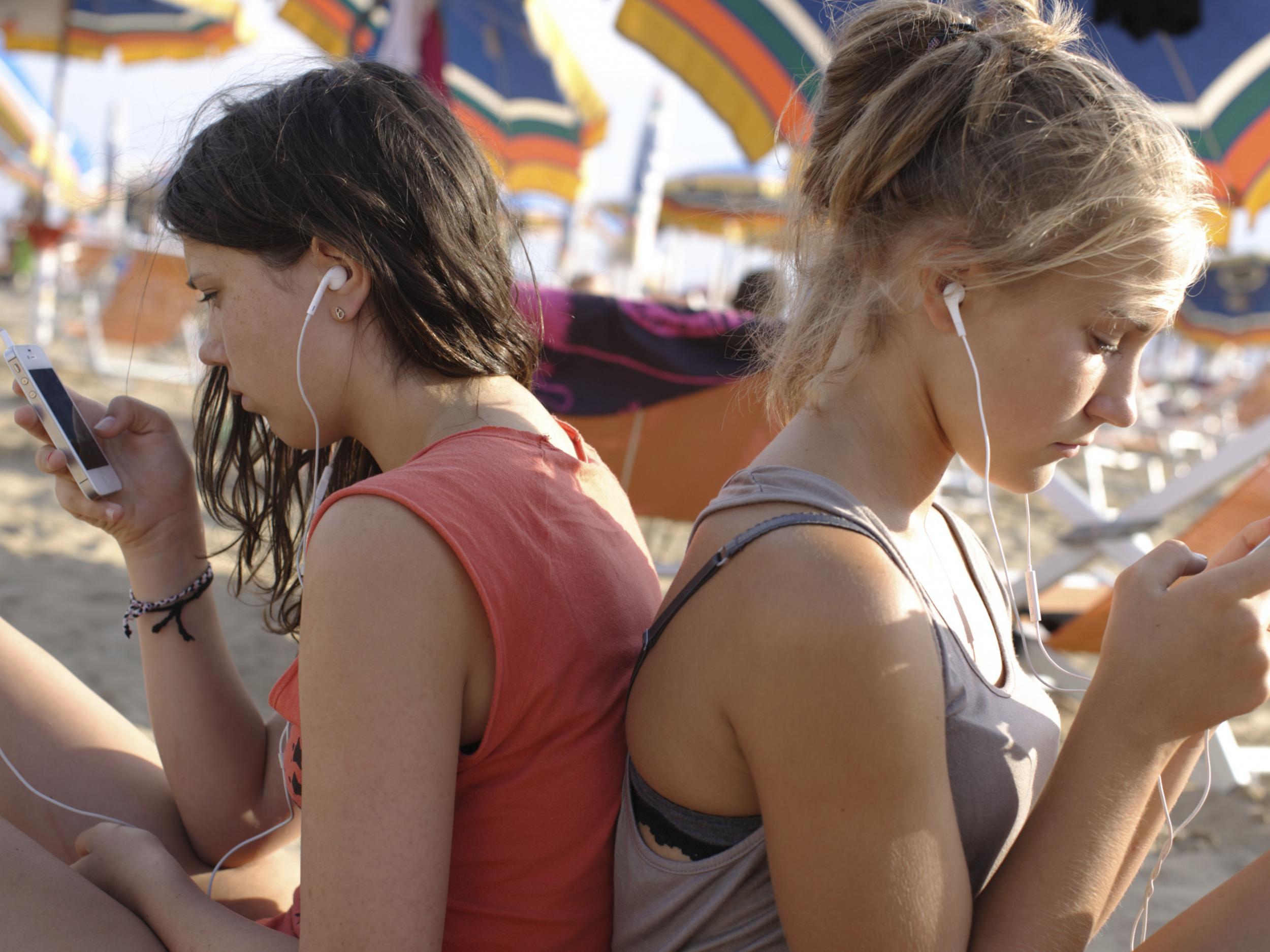The Independent's journalism is supported by our readers. When you purchase through links on our site, we may earn commission.
There is a way to prevent so many teenage girls being depressed – but no one wants to admit it
Pity the girl who’s wearing a bra before she leaves primary school; already she’s ventured over the top, into a no man’s land of groping, cat calls and adult disapproval

Even if it were possible, there is nothing on earth that would make me want to go back to being a teenage girl. My early twenties? Possibly. My thirties? Definitely. Anything under the age of 17? Frankly, I’d rather be fast-tracked into old age.
Being a teenage girl is hard, by which I don’t mean your hormones render you an irrational, weeping mess. I mean the world can start to crush you, just at the point when you’re trying to grow. What’s more, it’s a problem that seems to be getting worse.
It doesn’t surprise me in the least that a quarter of 14-year-old girls are showing signs of depression. If anything, I’m surprised that the number isn’t higher.
There will of course be the usual excuses. Perhaps it’s all down to greater openness surrounding mental health issues. Or maybe it’s a symptom of what one might vaguely term “modern life”. Either way, neither of these things explain the growing gap between the mental health of teenage boys and girls (10 per cent of 14-year-old boys report experiencing depression, with parents overestimating symptoms in boys and underestimating them in girls).
If, as we’re so often told, we’re moving towards a more equal, gender-neutral society, why is it that girls are suffering so much? The sexist might argue that this is proof that equality does not make women happy. The feminist, on the other hand, might point out that this shows we don’t yet have equality at all.
I’d say the feminist is correct, and what’s more, that an illusion of equality has itself been used as an excuse to neglect young girls. We’ve grown used to the narrative that says sexism is dying out. If anything, we’ve been ordered to focus our attention on the boys, who apparently lack the communication skills to express themselves in a supposedly “feminised” world. The girls? Well, they can take care of themselves (which is good preparation for later, when they can also take care of everyone else).
Alas, it turns out they can’t. And before this turns into a story of subtle victim-blaming (“Girls with smartphones flirt most with depression and suicide”), fetishisation (“Why do men love sad girls?”) and/or belittlement (“research like this […] trivialises real depression”), I think we should take girls at their word. God knows, we’ve spent long enough disbelieving them.
The history of mental health is littered with shameful tales of female madness being misdiagnosed in order to control outspoken women, while genuine symptoms of mental breakdown have been taken seriously only if and when they present in men. Women’s accounts of their inner lives – which ought to be the starting point for any diagnosis – have routinely been neglected, the female of the species being considered an unreliable witness even to her own thoughts and feelings.
If girls say they are depressed, we owe it to them to listen. Furthermore, we can no longer afford to ignore the effect of a highly gendered culture on the mental wellbeing of girls. If we’re able to draw links between masculinity and high suicide rates in men, we can surely do the same with femininity and female despair.
If the past is another country, female adolescence is a war zone. Puberty transforms you into a walking target overnight. If you’re lucky, other girls get there before you and become your shields. Pity the girl who’s wearing a bra before she leaves primary school; already she’s ventured over the top, into a no man’s land of groping, cat calls and adult disapproval.
Girls need support in getting through this. They need coping methods. But they also need a different society, one which permits them to take up space, to express their fears and passions rather than internalise them. It should not be the role of mental health services to patch girls up and arm them to face another onslaught of patriarchal slings and arrows. There has to be a ceasefire. Girls shouldn’t have to be so brave.
Teenage girls are not weak. They’re on their way to becoming full-grown women in a world that still treats them as inferior, despite demanding more of their bodies and minds than ever. It’s heartbreaking that so many of them can’t see a way through to the other side. We can tell them it gets better, and it does, but it’s simply not fair to ask them to wait.
Being shunted into the space between childhood and womanhood, between having a flat-chested, gender neutral, rough-and-tumble body and one which is seen as fit only for objectification or impregnation, can be hugely traumatising. Thirty years ago I responded by starving myself into a prolonged state of pre-pubescence. Today, when pornified images of young female bodies are more freely available than ever, I might have responded by cutting, binding my breasts or reinventing myself as a disembodied other online.
The opportunities for expressing female self-hatred are always expanding, even as other spaces for self-expression shrink. And yet, it’s not an inevitable development: some unavoidable symptom of living in the smartphone age.
Millions of girls are not born unhappy. Depression and mental illness can be coping mechanisms when all else fails. There’s no simple cure for despair, but it’s time we gave all young women the room they need to grow.
Join our commenting forum
Join thought-provoking conversations, follow other Independent readers and see their replies
Comments